#the old gods
Explore tagged Tumblr posts
Text
"Who are You? "
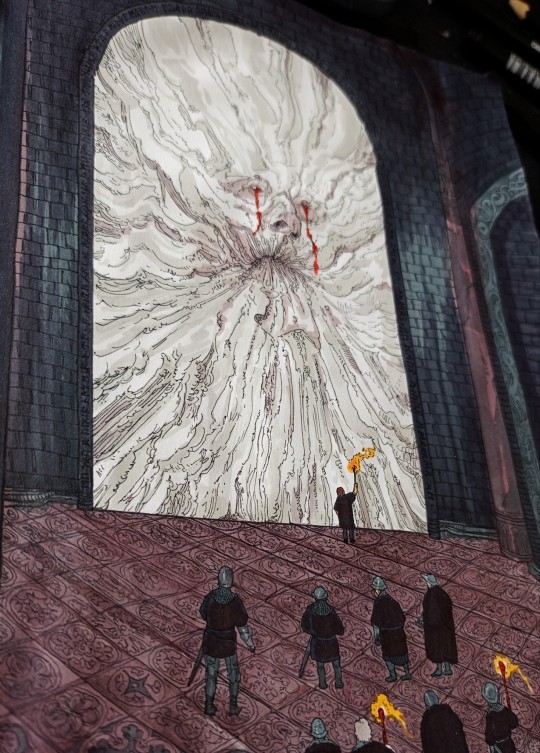
The Black Gate at Nightfort
#fanart#asoiaf#drawing#illustration#a song of ice and fire#the winds of winter#game of thrones#asoiaf fanart#valyrian scrolls#art#night's watch#nightfort#the black gate#weirwood#the old gods#the north#the wall
753 notes
·
View notes
Text
The Hearthstone God
[The sequel to the God of Prophecy, and the Serpent God of Protection]
---
Fire is out of fashion, in this new age.
Some of my kind have found new homes, new names, in factories or forges, in the hearts of wildfires or crystals or volcanoes.
Most of us are simply forgotten.
I was a fire god, once. A god of gathering, a god of communion, a god of song and story. But there are no hearthstones now. No fires around which families gather to eat and talk and tell stories.
I am lucky. I am tied to a great flat stone near a lake. A lake that has survived all the wild exuberance of men, when they learned to change the world around them. Once, this was a place where travellers stopped to rest. At first they travelled on their feet, or on half-wild horses. Then there were carts, and a road. Much later, cars drove down the road. The road was paved.
But some things do not change. People need clean water to drink, and the spring here is good. They need to rest, when they are weary. And even now, when they come to camp in nylon tents, to fish in the lake, or to hunt the ducks, or drive camper-vans to the flat place, their ancient instincts wake, and they turn to fire once more. They light new fires atop my stone, so flat and safe, from which no log will roll to set the woods afire.
Not so many come now. Camping is less popular these days. But some still come. Some still light their fires, and settle around my stone, and talk, or listen to music, or tell stories. So I survive, just barely, on the edges of belief.
I feel it, when things begin to change. Something is happening. Something is drawing old gods back. Not the great ones, risen beyond mortal understanding, but the oldest gods, the small gods, those who rose when humankind were still learning what they were.
Far to the west of me, a god even more ancient than I wakes, and begins to hunt again. I remember the stories that were once told of that old serpent, and tell them over to myself in the long fireless nights.
A god of prophecy, not of this land, settles south and west, and I remember tales of ancient ravens, their wisdom and their guile and their sharp, sharp eyes. There was a raven clan once, who passed this way in the days of skin garments and stone tools, but I have forgotten their name. I only remember the symbol they wore, the black bird with its spread wings, marked in charcoal or charring on wooden talismans or leather garments.
I wait, to see who will awaken next.
To my great surprise, it is me.
The people who come this time aren’t like the campers. They come at night, a ragged family group with few blood ties between them, with a single tent and few possessions carried on devices I haven’t seen before. Bicycles, they’re called, slung over with bags the way ponies used to be. They come at night, and hide when cars pass on the road.
They light a fire on my stone, with wood scavenged from the forest, and huddle around its warmth. They don’t speak much, not at first, but they say enough. They have no home, I learn. They are travellers of a kind I have not known before, who are allowed to stop nowhere, but have no goal but a place to rest. They are thin, and worn, and so tired. So very tired.
They need a hearth.
I am only a weak shadow of a god, now, who once recorded the songs and stories of a thousand generations in my ancient stone, but I am still a god of fire. Their fire burns slow, their little fuel lasting well. The food they heat over it sustains them better. The water of that spring, my spring, puts a little life back in them. This stone has lain in this place since great monsters walked this world, since before humans spoke words to one another, and I came into being with the first fire that burned on it. I am old, old, and though weak, I am not powerless.
They stay.
I cannot speak to them. I am old, and weak, and they do not believe. But slowly, with the power of the fires they build every night, with the tiny offerings of scraps of food spilled into the flames, with their growing confidence in the safety of this place, I am able to do more. I give them dreams and they find the cave not far away, where they can hide. They dream of fish, and begin to try to catch some. A woman remembers that some of the local plants are safe to eat, when I slowly wake a long-forgotten memory of a camping trip from her childhood.
And then a child, a strange, quiet child who rarely speaks, a child without mother or father, in the care of an older brother who is exhausted to the very edge of death but cannot give up while she needs him… that child begins to hear.
She sits on my stone, sometimes for hours, not moving or speaking. It worries the others, but at least she is quiet, at least she is no trouble, and they are beginning to associate their hearth with safety. So they let her sit.
She is *listening*. She is listening to the sound of the water, to the sounds of the forest, to the wind blowing. And because she is listening, where no-one else has listened for so long, I sing to her. I sing to her the songs of thousands of years. From the wordless music of the earliest people, who sang what was in their hearts without words, to the songs I have learned from the fishermen with their radios and bluetooth speakers.
I do not know if she hears me, for some time. But then, one night, while they sit around their fire and eat food the oldest have almost certainly stolen, she sings one of my songs. “In a cavern… on a canyon… excavating for a mine…” she sings in a small voice. The others are startled, confused, for she has not spoken aloud since some bad thing they do not name happened, but one of the older ones knows the song and sings with her.
I have always liked ‘Clementine’. It’s been popular with campers for a long time.
The next day, while she sits on my stone, she sings along to one of the wordless songs the Raven People whose name I no longer remember once sang. It is a lullaby, a soft croon to soothe an infant, passed from mother to mother, and she seems to take pleasure in it.
She can hear me. She can even answer me, as the voice driven away by pain and fear begins to return. And so I grow stronger still. Strong enough to make the raven sign on the stone, one day, in the ashes of the fire of the night before.
She takes a half burned stick, and draws the sign on the stone. Pleased, I show her another sign, a leaping fish. She draws that too.
Soon, I need not shift the ashes. I can show her the pictures in her mind, and she draws them. She draws the wheel of a cart, and into her heart I whisper the stories the travellers in covered wagons once told over my stone. She draws a fish, and I make her laugh silently with the jests of fishermen who boast of fish who escaped them. She draws a horse, and I tell her about the wild horses who once drank at this lake, about the men and women who captured and tamed them and rode them through the forest when it was far greater than it is now. She draws a long-toothed cat, and I show her the great cat that once slept on my stone, and denned in the cave where her new found family sleep.
One night, when all the others are asleep and my fire has burned down to coals, she creeps back to the stone and looks into the coals. “Who are you?” she asks. “Are you real?”
She is afraid that the voice in her mind is the voice of madness, a lie created by a mind that does not work like other minds, that has endured great hardship. I do not want this child to be afraid. To instill fear runs counter to my very nature, save in whoever might threaten those my hearth protects.
I am a god of the hearth. I am a god of food, and communication, and peace, and safety. I am all the things that fire used to mean, before humans learned again to fear the thing they had tamed. I do not often take a form, for fire is my form, but for her I must try.
There was a wise woman once, who knew me, whose clan visited this lake several times every year. I watched her grow up, and grow old. I watched her learn of the god of the fire stone, and I watched her teach others. She slept beside me as a child, and as a woman. She sang her children to sleep beside me, and her grandchildren, and dozed beside me as an old, old woman. To her, I was represented by a sign of a flame in an oval, a fire and a stone.
I build a likeness of her out of the light of the coals and the shadows of smoke, a child with straight dark hair and a simple tunic, and in lines of light I draw the sign of the fire and the stone on the outlined chest. “I am the fire,” I tell her, “and the stone. I am all the fires that have ever burned here, all the stories told, all the songs sung, all the meals eaten. I am the traveler’s hearth, and the rest for the weary, and this is my place.”
“Piedra de fuego,” she says, tracing the symbol with her finger in the air. “The fire stone.”
“Yes. I am the god of this place.”
She frowns at this. “My brother says that God is in the sky.”
“Many gods are in the sky.” I cannot continue to hold the form of the girl, but the coals shift to make my sign. “I am not. I am here. I have always been here, since the first people built a fire on my stone, and warmed themselves.”
She nods slowly. “You are… a small god,” she says thoughtfully. “A place god. Like in movies.”
“Yes.” I’ve heard of movies, which are a new way of telling old, old stories. “Old places, important places, often have gods. And gods who are forgotten return to their old places and wait, until someone believes again.”
“Will you protect us?” she asks. “When the police come, to tell us to move on?”
“I am not strong,” I tell her sadly. “I cannot make men go away from here, if they are dangerous, or even call game here for you as I once did. But what I can do, I will do.”
She sits watching the coals for a long time, thinking. “Can we make you stronger?”
I think too, and she waits patiently. “You have already made me stronger. You listened. You believed. If you can convince the others to believe, that will make me stronger still.”
She sighed. “They don’t believe in anything, anymore. Not good things.”
It is a sad thing, that she knows that. They’ve been trying to hide it from her. “Then,” I tell her, “that means there is a place in their hearts that is ready for me. I am not hope. I am not a happy ending. I am not a god in the sky. I am a stone, and a fire, and a song. I am *real*. They can believe in what is real.”
The next night, she asks for a story, and one of the adults tells her an old fairy-tale from a country far away.
The next night, again, she asks for a story, and another adult tells a funny story about his childhood.
On the third night, she asks her brother to tell her a story. He tries, but he is so tired - not physically, but emotionally - that he runs out of words. So she lays her hand on his arm and offers to tell him a story, instead.
And she tells them all a story about a stone near a lake, flat and strong, that people wearing uncured skins and carrying flint weapons built a fire on. She tells of centuries passing, of people coming to the lake on their feet, on horses, in carts and wagons, in cars and motor-homes. Of thousands of years of fires, of people gathered around them, of the great continuity of humanity, and the Piedra De Fuego that has lain in this place since time began, listening to the stories and the songs and the voices of people long gone. Somewhere in the stone, she says, laying her hand on it, all those stories are remembered. All those songs are still sung. And it will remember us too.
I don’t know if it will work. But I was right. People need to believe in something. They need something to hold onto, when times are hard, when the ties of community and family are broken and they feel alone. And a stone thousands of years old, and a fire endlessly renewed on that stone, always new… that is real. They touch me, and think of those who came before, of thousands of years of history meeting them in this place, and they feel less alone.
It’s not much, not yet. But it is something. My nature, my existence, as explained to them by my small, strange priestess, is a slender lifeline flung to those who are adrift, a tiny certainty in a world they do not trust. And the more they believe in that lifeline, that certainty, then the more they believe in me. I *am* growing stronger.
When the police come, I will not be able to make them leave… but I think I am strong enough now to hide my people from unkind eyes. And if I can do that, then their faith will grow.
Tonight, three more people come. A mother and two children, weary and beaten down with hardship. My people welcome them, give them fish and greens grown by the lake, speak kindly to them. And when they have eaten, my little priestess sits between the two children and tells them a story of a stone, and a fire, and thousands of years of stories and songs, and she sings a wordless lullaby six thousand years forgotten, but living again in a child who draws the sign of the Raven in the dirt while she sings, and the sign of the fire on the stone.
And I grow a little stronger.
#short fiction#original story#i aten't dead#the old gods#small gods#household gods#forgotten gods who do not forget
3K notes
·
View notes
Text
14 Days Until Veilguard
Technically 13 days, 23 hours and 27 minutes but who's counting...
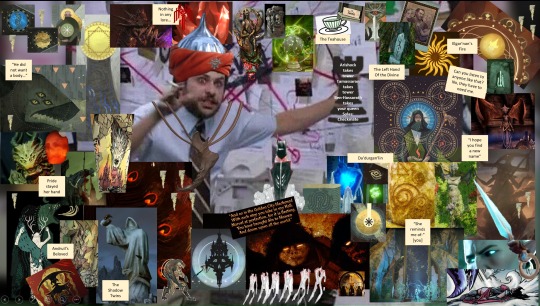
I AM UNWELL
#No Veilguard Spoilers#DATV#Dragon Age#Dragon Age The Veilguard#dragon age veilguard#da4#Dragon Age Meme#Dragon Age Memes#I Am Charlie Day#Charlie Day#Red String#Tin Foil Hattery#The Evanuris#Red Lyrium#The Fade#The Old Gods#The Titans#Arlathan#Slavery#Rook#Varric#varric tethras#Fen'Harel#Solas#What Does It All MEAN#Dragon Age Lore#Homemade Lore#Homemade Dragon Age Lore#Lore Dragon#I Am Unwell (TM)
168 notes
·
View notes
Text
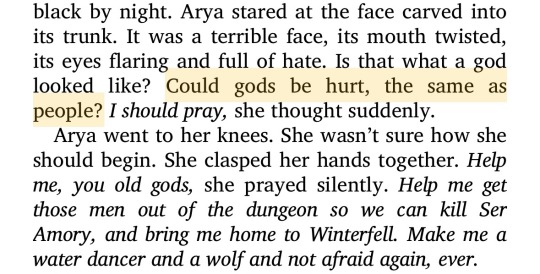
Arya IX, ACOK
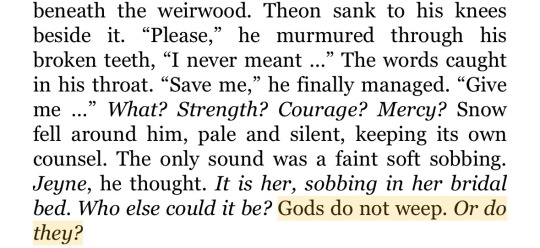
The Turncloak, ADWD
Two prayers.
#asoiaf#theon greyjoy#arya stark#a clash of kings#a dance with dragons#religion in asoiaf#the old gods#the weirwood’s face in harrenhall is full of hate#and the one in winterfell is crying#will there ever be a laughing tree?#doc
103 notes
·
View notes
Text









~ Greek Mythology - Aphrodite
Goddess of love and beauty
#hellenic deities#hellensim#hellenic worship#greek goddess#greek mythology#ancient greece#polytheism#hellenic polytheism#wicca#wiccablr#paganism#pagan community#paganblr#hellenic paganism#witchcraft#deity work#deity worship#digital altar#the old gods
90 notes
·
View notes
Text
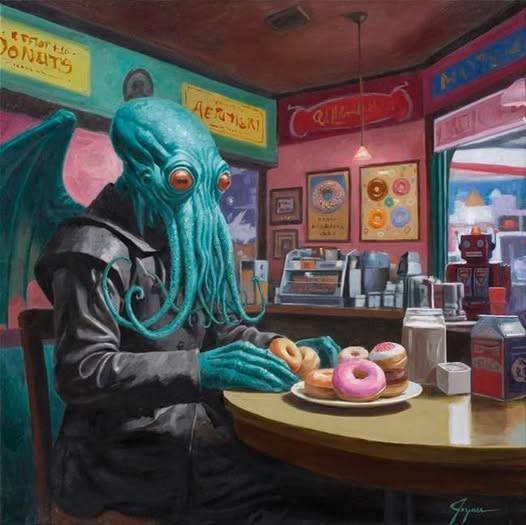
'Somewhere in Providence' by Eric Joyner
54 notes
·
View notes
Text

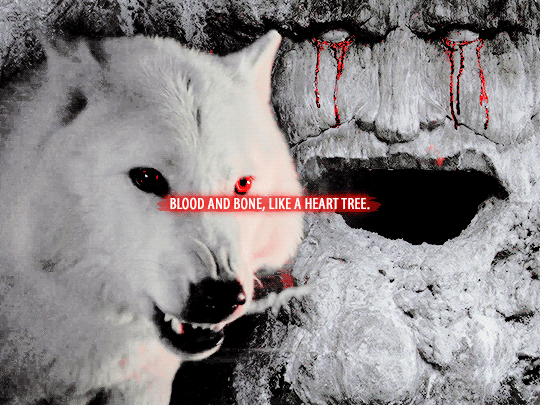
He had a weirwood's eyes. Red eyes, red mouth, white fur. Blood and bone, like a heart tree. He belongs to the old gods, this one.
#asoiafedit#gotedit#ghostedit#gameofthronesdaily#gotghost#ghost#asoiaf#a song of ice and fire#asoiaf quotes#jon x ghost#the old gods#weirwoods#direwolves#game of thrones#myedit
464 notes
·
View notes
Text
pop-culture tags to block as a pagan
(not that anything is inherently wrong with these fandoms!!!! this is just to avoid seeing these fandom's content under searches and tags about your gods if you so choose)
HELLENIC:
#lore olympus / #rachel smyth / #lo / #lo hades / #lo persephone / #lo apollo / #lo artemis / #lo demeter / #hadestown / #hadestown fanart / #hadestown the musical / #the sandman / #the sandman netflix / #dc / #morpheus x reader / #stray gods / #percy jackson / #pjo
NORSE:
#mcu / #marvel / #marvel cinematic universe / #marvel studios / #mcu loki / #loki mcu / #mcu thor / #thor mcu / #loki x reader / #thor x reader / #loki x thor / #thorki / #lokius / #loki series / #tom hiddleston / #god of war / #gow
EGYPTIAN:
#ennead manhwa / #seth ennead / #ennead seth / #ennead fanart / #seven seas entertainment
GENERAL/MISC/OTHER:
#record of ragnarok / #ror / #snv / #shuumatsu no valkyrie / #yaoi / #bl / #boy love
let me know any additions below! this is certainly not comprehensive.
#pagans#pagan#paganism#paganblr#pagan witch#pagan gods#pagan deities#deity work#deity worship#pagan tips#hellenic pagan#kemetic paganism#hellenic polytheism#norse paganism#norse pagan#egyptian pantheon#egyptian paganism#the old gods#heathenry
206 notes
·
View notes
Text
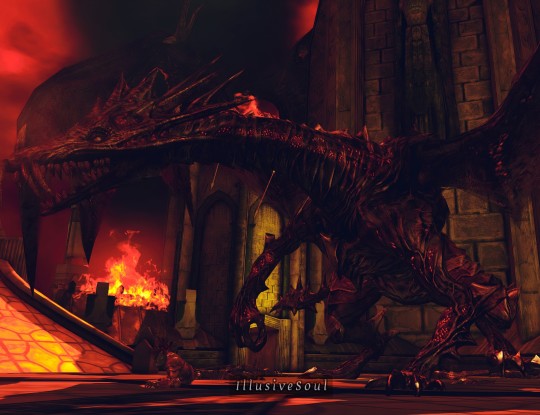
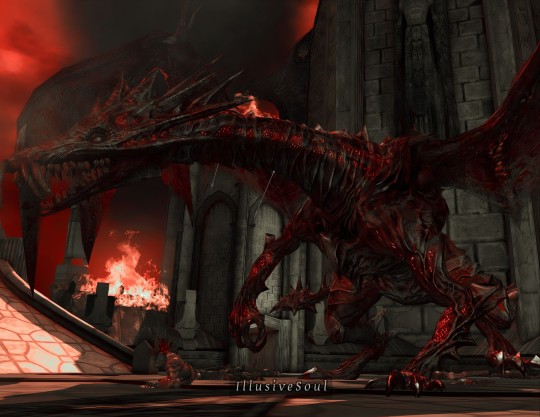
Urthemiel
#urthemiel#the archdemon#the old gods#dragon age#illusivedits#illusivesouledits#dragon age origins#da origins#da: origins#darkspawn#dragon age screenshots#daedit#daedits#dragonageedit
36 notes
·
View notes
Text

Eddard Stark
#ned stark#house stark#asoiaf#drawing#illustration#the winds of winter#game of thrones#asoiaf fanart#valyrian scrolls#art#character design#the north remembers#a game of thrones#grrm#costume design#digital art#digital illustration#digital painting#my art#ice#valyrian steel#winterfell#the north#winter is coming#ndn character#northmen#the old gods#GoT#kings of winter#indigenous
134 notes
·
View notes
Text
Spoilers for Doctor Who, The Legend of Ruby Sunday!!!!!
Spoiler bar!
Doctor Who theory time! (Or maybe just the crackpot ramblings of a disturbed lunatic)
So in the latest episode, The Legend of Ruby Sunday, we had the character Harriet Arbinger, who, like Henry Arbinger from The Devil's Chord was actually a Harbinger. Only this time, she was the harbinger for Sutekh, The One Who Waits.
As Sutekh was revealing himself, Harriet listed out other deities, Toymaker God of Games, Maestro God of Music, Trickster God of Traps etc etc. But that got me thinking about another person referred to as a god.
The Oncoming Storm, The Predator, The Last of The Time Lords, The Shadow, The Beast, The Valeyard, The Lonely God.
The Doctor
What if The Doctor is either one of The Pantheon or the child of one of The Pantheon?
So what if The Doctor is The God of Life? A God that was sent away from The Pantheon either for his own protection or for being a positive God (since Sutekh only lists chaotic gods)
Being a God of Life would explain his infinite lives/regenerations and being a multiversal being and an Old God that was banished when he was young, would truly make him, The Timeless Child
But because he was sent to Galifrey and joined a race of Time Travellers, he became, a non linear God. And that made him dangerous, even to his fellow gods.
So, The Trickster, God of Traps, made a deal with The Founding Fathers of Galifrey, trapping The Doctor while giving Tecteun the ability to pass on regeneration to her race and people.
Tecteun formed The Division to protect her people from The Pantheon while keeping The Doctor under her observation.
But a side effect of The Doctor being a non linear God, is that unlike Maestro and Sutekh, who have their physical beings as harbingers (Henry and Harriet Arbinger), The Doctor has something else as his.
The TARDIS is The Doctor's harbinger. A living time machine for the God of Life, that's been corrupted by his fellow gods. And I can see two points where the TARDIS is corrupted.
Either since the very beginning, when The Trickster made a deal with Tecteun and corrupted the TARDIS he knew The Doctor would end up with.
Or the one that I think is more likely, where The TARDIS is corrupted by Sutekh in 1911 when he battled The 4th Doctor in The Pyramids of Mars
Tl;dr- I think The Doctor is an old God and the God of Life, Sutekh's antithesis
This has been Ash, singing off- Ash (he/they)
#doctor who series 14#doctor who#doctor who spoilers#15th doctor#dw spoilers#rtd2#ruby sunday#maestro dr who#sutekh dr who#the trickster dr who#sutekh#the trickster#the toymaker#the toymaker dr who#The Pantheon Doctor Who#The Old Gods
39 notes
·
View notes
Text
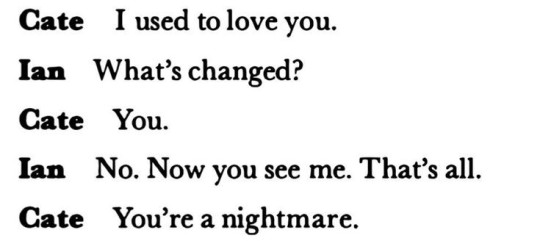
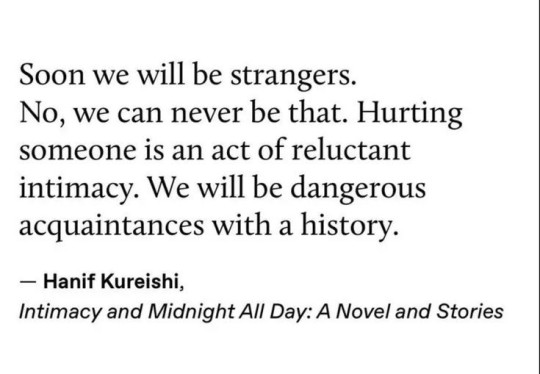

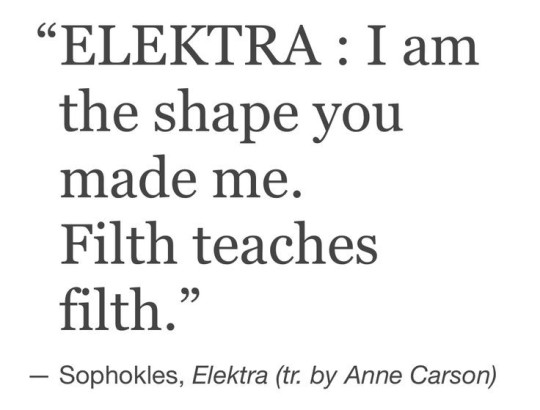
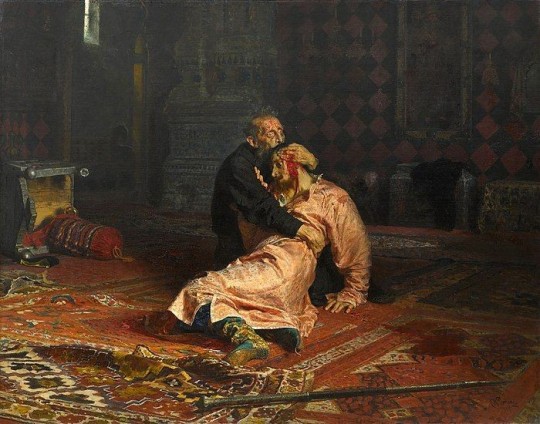
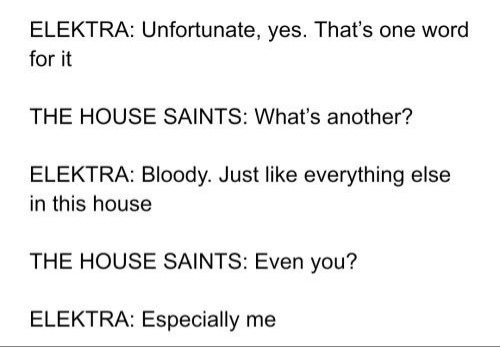

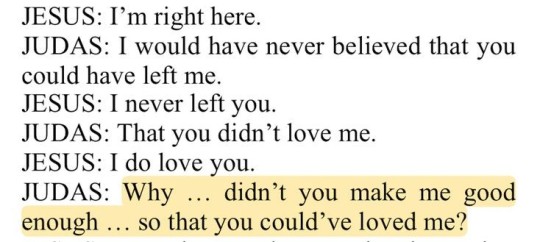
Ryoko and the Old Gods.
Blasted by Sarah Kane / Intimacy and Midnight All Day: A Novel and Stories by Hanif Kureishi / @/seravph / Elektra by Sophocles, trans. Anne Carson / Ivan the Terrible and His Son Ivan by Ilya Repin / The Elektra Complex by Joan Tierney / The Great 1x10, ‘The Beaver’s Nose’ / The Last Days of Judas Iscariot by Stephen Adly Guirgis
#WHAT IF I MADE A WEB WEAVING FOR MY OCS. haha jk unless-#i would explain it in the tags but it is so much.#it is a complex relationship they have/had#my ocs#i'm making stuff#ryoko#the old gods#ryoko and the old gods#web weaving
151 notes
·
View notes
Text
Hi guys, just wanted to share a shirt I painted (sorry for the shitty quality btw, my camera sucks :,( ).


Rher the trickster moon god.
#fear and hunger#fear and hunger termina#fear and hunger 2#artwork#art#fanart#funger termina#funger#the old gods#fear and hunger rher#rher
45 notes
·
View notes
Text
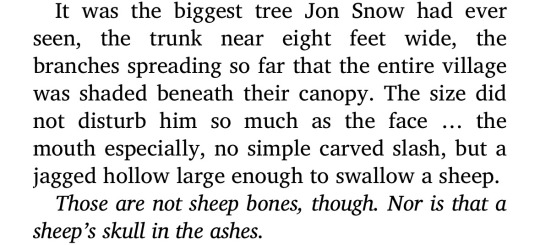
Jon II, ACOK
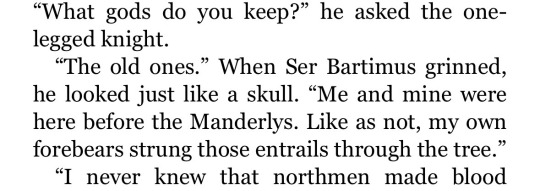

Davos II, ADWD

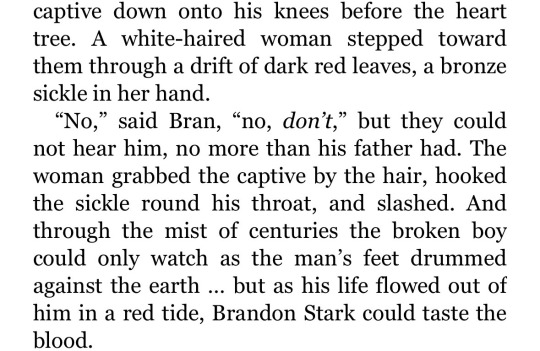
Bran III, ADWD
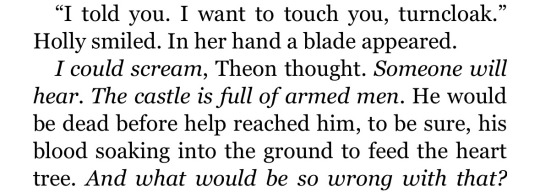
A Ghost in Winterfell, ADWD
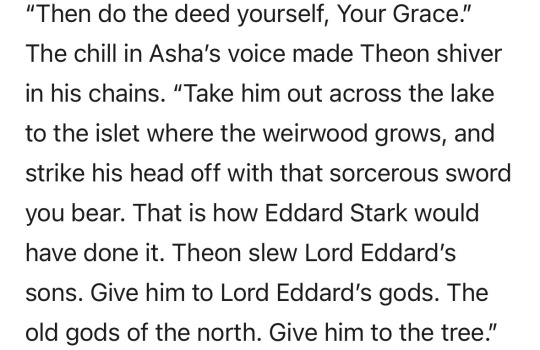
Theon I, TWOW
Theon as blood sacrifice to the Old Gods.
#asoiaf#theon greyjoy#bran stark#Thinking about how Patchface was given to the Drowned God#and then spit back out as a prophet#it could be that Theon's sacrifice goes similarly#especially because I don't think poor Bran will like having to drink Theon's blood :(#I once read a theory that weirwood trees need a human sacrifice#(especially blood)#in order to be “activated”#it could be that's what Bloodraven is after#doc#religion in asoiaf#the gods are not done with me yet#the old gods
75 notes
·
View notes
Text
theon weirwood
Come vibe with me about Theon and weirwood imagery and the weir walker theory!
Awhile ago, I did a deep dive into David Lightbringer's videos and I truly enjoyed his theory about the origin of the Others linked here: Symbolism of the Others: Weir Walkers. In brief, his theory is that the Others were the original spirits of the Weirwoods. They were a form of Sidhe (fae) who were violently evicted from their weirwood homes. He has a lot of theories as to how that happened- some of which involves the sacrificing of children or children of the forest- but the basic idea is that the weirwood trees were once green trees that were corrupted and transformed into the red and white trees we see in the series through the eviction of the Others:
The emptied-out white weirwood trees then became wight trees, like corpses with most of their minds and souls removed… and in fact that’s exactly what the weirwood trees look like, with their bleeding, anguished faces, bone-white bark, and leaves like blood hands. They look like dead people; like zombie trees, like wight trees. These hollowed out zombie trees have since become a home for a new hivemind of greenseers – many of whom are humans like Bloodraven and Bran... (David Lightbringer.)
What I find touching about this theory in regards to Theon is how his life seems to be mirroring that of the weirwood trees. Like the trees, he's evicted or stolen from his original home, the Iron Islands. But through Ramsay’s torture, his very identity and essence is also stolen, leaving him a shell of what he once was. Weirwoods are skinchanged in the novels and in a symbolic sense, so is Theon. Theon’s actual skin is removed through flaying and amputation and he is starved and beaten. This horrific torture forces Theon to accept the persona of Reek into his body (like a skinchanger entering a weirwood) and reject Theon. After the torture, Theon's physical form as "Reek" even starts to resemble a Heart Tree. He transitions from the "lean, dark youth of nineteen who found everything amusing," in AGOT to the "white haired starveling" of ADWD. This is the most evident when we first meet him again in Reek I in ADWD:
When he raised a hand, he was shocked to see how white it was, how fleshless. Skin and bones, he thought. I have an old man’s hands. (ADWD) “His hair’s gone white and he is three stone thinner, aye, but this is no serving man. Have you forgotten?” The crookback lord looked again and gave a sudden snort. “Him? Can it be? Stark’s ward. Smiling, always smiling.” “He smiles less often now,” Lord Ramsay confessed. “I may have broken some of his pretty white teeth.” (ADWD) “There’s blood on your mouth,” Ramsay observed. “Have you been chewing on your fingers again, Reek?” (ADWD)
So he goes from a dark youth- a "green" boy- like the original green of the weirwood leaves and the green of the sea to a corpse like figure with white hair and white bony hands. He has just eaten the rat so he has blood on his mouth, as Ramsay remarks. Ramsay also asks him if he has been chewing on his fingers again, indicating that there may still be blood on his hands from the rat. But the question makes us imagine bloody, flayed fingers as well.
Theon also has metaphorical blood on his hands because of the murders he committed or allowed- particularly those of the miller's children- which connects with the idea of sacrificial children playing a part in making the Others or evicting them from the trees. It is even more layered when you remember that Theon himself was brought to Winterfell as a potential child sacrifice.
Ramsay also mentions that he broke Theon's teeth, which calls to mind a bleeding mouth- like the bleeding CARVED mouth of the heart tree. Ramsay has essentially carved Theon into Reek with his flaying knife.
During Theon's godswood scene in the A Ghost in Winterfell chapter of ADWD, a red weirwood leaf falls onto Theon’s head, completing the imagery of Theon as a Heart Tree and giving him the "weirwood stigmata," which a lot of other characters share at different times in the novel such as Arya, Catelyn, Dany, Jon, etc. It is also so interesting that Theon thinks of himself as a ghost in this chapter- Theon is like a ghost who use to live inside his tortured and abused body just as the Others are like ghosts that used to live inside the corrupted Weirwood Trees.
I've always loved Theon's godswood scene, but I've also always wondered why the weirwood trees are so intrinsically connected to Theon (at least in my mind.) I mean, it does make sense that they would be- he did grow up in Winterfell and many important things happen to him in the godswood throughout his life. And obviously, there is also the connection with Bran who may be reaching out to him through the Heart Tree. But these two connections to the weirwoods- growing up at Winterfell and Bran- didn't completely encapsulate the incredible, almost empathetic? bond I feel Theon has with the weirwoods and "the old gods."
But then this theory- that the Others came from the trees- did seem to be the last piece that made that scene as powerful as it is to me. It's beautiful to think of Theon- who has been othered (Othered) all his life and who has essentially become a wighted version of himself- is standing in front of these wighted corpse trees praying to be Theon again. And he feels so recognized- so understood by these trees that are also seeking to have their spirits returned to them.
They know me. They know my name. (ADWD)
It makes it all the more moving and beautiful to me.
#theon greyjoy#asoiaf#david lightbringer#weir walker theory#the others#the old gods#valyrianscrolls#theon & the weirwoods#theon & the others#theon & the heart tree#theon & the old gods#theon in the godswood#the godswood#a song of ice and fire#a dance with dragons#adwd#what do you think about this?#I really love the theory#asoiaf meta#asoiaf discussion
38 notes
·
View notes
Text
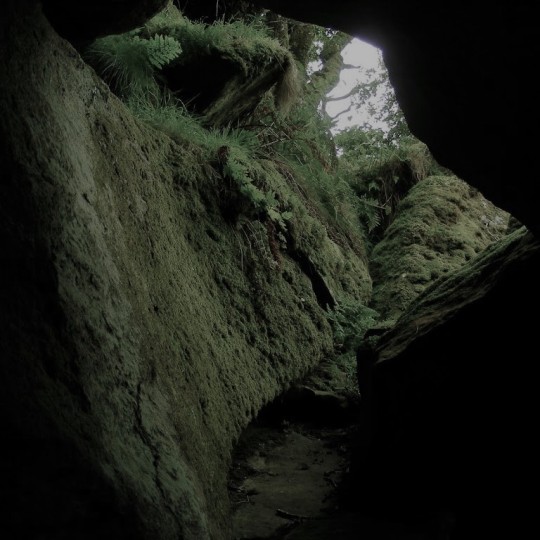
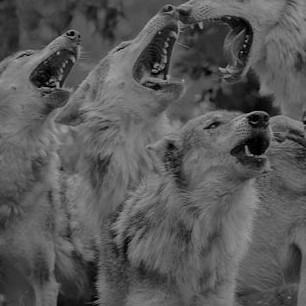
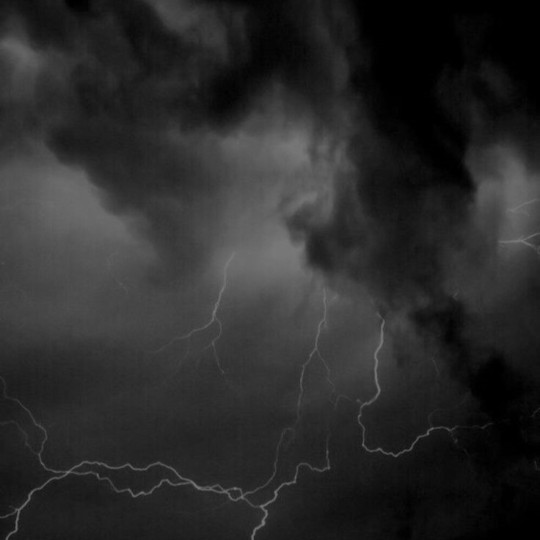
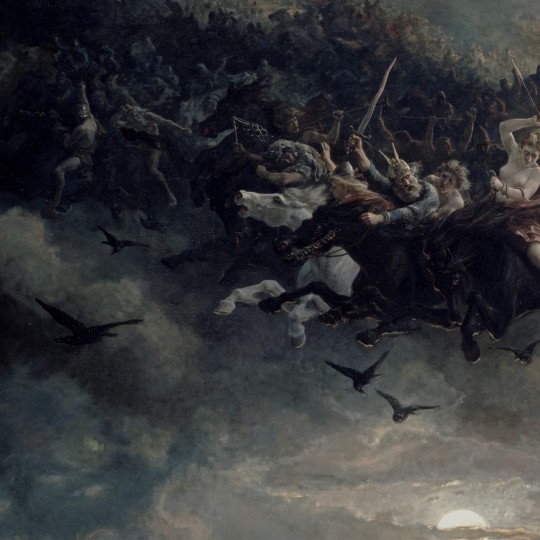
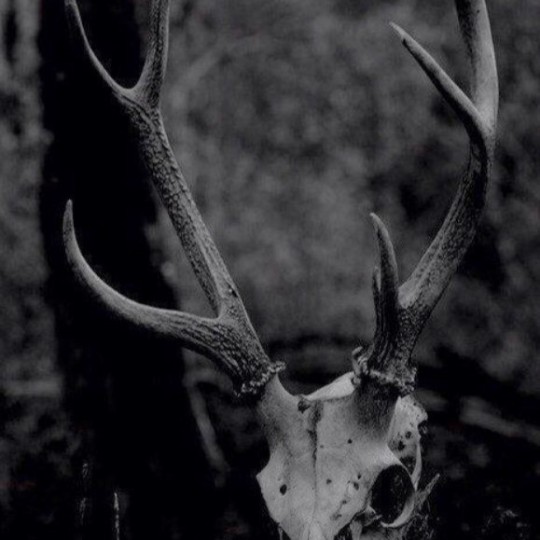
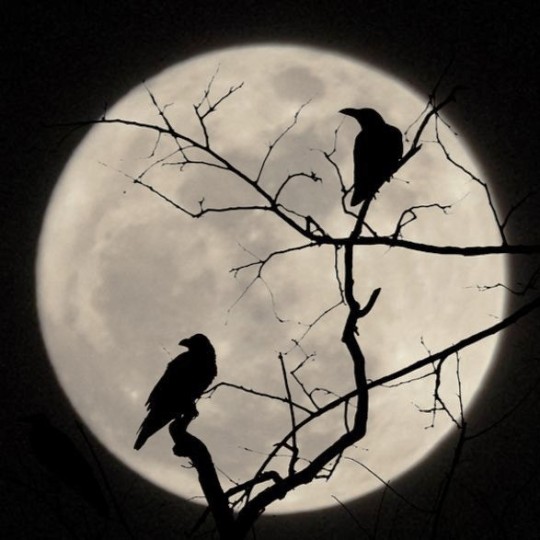
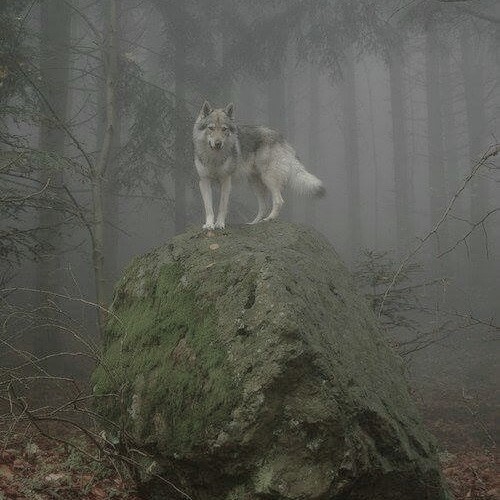

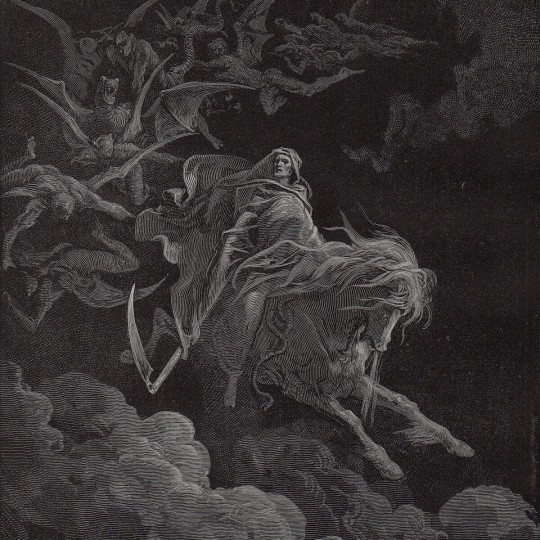
~ Welsh Mythology - Arawn, King of the Otherworld, God of death
Hir yw'r dydd a hir yw'r nos, a hir yw aros Arawn
Long is the day and long is the night, and long is the waiting of Arawn
#welsh deities#paganism#celtic paganism#welsh paganism#welsh witchcraft#welsh wicca#welsh mythology#welsh folklore#mythology#gods and goddesses#the old gods#pagans#celtic pagan#pagan community#paganblr#witchblr#wiccablr#deity work#deity worship#the otherworld#annwn#arawn#wicca community
84 notes
·
View notes